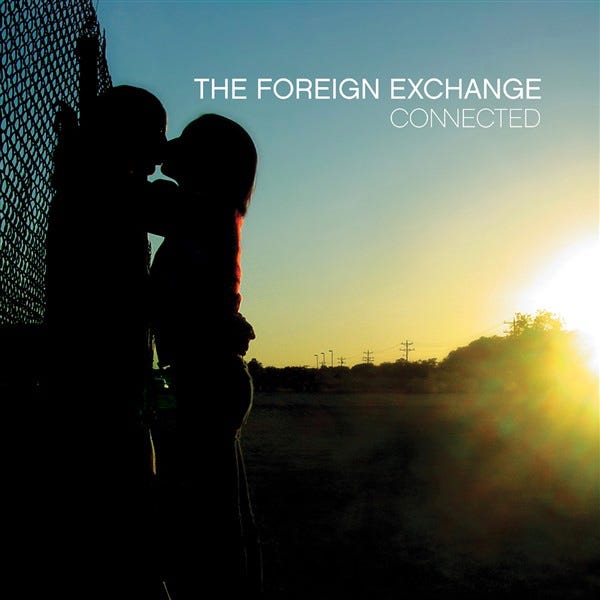Anniversaries: Connected by The Foreign Exchange
Phonte and Nicolay met on Okayplayer, which led to their 20-year career together.
Before Connected’s release, Phonte was recognized for his contributions to the Justus League collective and his role in the group Little Brother alongside Rapper Big Pooh and producer 9th Wonder. Meanwhile, Nicolay made a name for himself with his mellow yet distinctive production style. Drawn together by their shared musical sensibilities, their online interactions led to a decision to collaborate on an album. Their collaboration began on Okayplayer’s online forums, adopting a method reminiscent of The Postal Service: beats sent via instant messages from Nicolay to Phonte, who then layered his verses, with Nicolay finalizing the track before there was social media.
Although artists had collaborated remotely before, typically by exchanging beat CDs, creating an entire album with such geographic distance was uncommon. Phonte and Nicolay achieved just that, finalizing Connected without ever being in the same room. Nicolay’s production often incorporates live instrumentation rather than relying solely on samples like 9th Wonder. Here, Nicolay’s production shines, especially evident in “The Answer,” where the music’s transient energy complements the dynamic verses from Oddisee, Ken Starr, and Phonte, with the latter humorously noting his overqualification for the role of a rapper.
Connected was released in the hip-hop scene in mid-August of 2004, where the soul’s organic essence is often misrepresented. Nicolay might either be a prodigy with an innate understanding of classic R&B, or perhaps his early life was touched by a serendipitous shower of Stax Records vinyl. The album captures the spontaneity and joy of the present, as YahZarah’s voice welcomes listeners on “The Foreign Exchange Title Theme,” expressing gratitude for the music and the moment. Despite their different approaches, the sonic texture of Connected complements 9th Wonder’s style, creating a familiar yet distinct soundscape for Phonte and his collaborators. This approach resulted in “Raw Life,” where Phonte and Joe Scudda deliver scorching verses that showcase their skills and challenge any doubters.
Phonte’s work with Median on Connected also explores personal growth and optimism. “Be Alright” sees them tackling adversity with hope, and “All That You Are” discusses the tug-of-war between artistic ambition and family responsibilities, with Phonte expressing his struggle to improve. Darien Brockington’s solo track, “Come Around,” offers a glimpse into the soulful evolution of The Foreign Exchange, focusing on personal relationships and life’s complexities, hinting at the group’s future direction in future albums.
Today, the group is characterized as an experimental soul act, with Phonte’s vocals often taking center stage against Nicolay’s rich, layered production. However, two decades ago, Connected presented itself as a straight-ahead hip-hop record. The album frequently feels like a Phonte solo project or perhaps a Justus League group effort filtered through Nicolay’s distinct production style. Given Phonte’s enduring talent as a rapper and the wealth of talent within the Justus League, this approach results in a compelling listening experience. Many of the tracks evoke the type of sounds Phonte excelled at with Little Brother, highlighting the partnership between his flow and Nicolay’s beats.
The essence of Connected lies in its deep dive into the life of Phonte and his crew as they navigate the complexities of chasing a music career. The album doesn’t shy away from the less glamorous aspects of this pursuit. In “Brave New World,” Phonte strips down the romanticized view of touring, focusing instead on the necessity rather than the allure, rapping about the real purpose behind the hustle, while “Let’s Move” showcases Phonte and Pooh rap about the relentless need to tour, highlighting the strain it puts on their personal lives. Their reflections continue in “Happiness,” where music becomes their refuge from life’s harshness, personal anxieties in “Be Alright,” and familial tensions in “All That You Are.”
Despite being crafted across an ocean, this album resonates with hip-hop’s grassroots spirit, where streetlight electricity once powered creativity. Twenty years on, the group has shifted towards more soul-infused sounds, devoid of rapping, showcasing Phonte’s evolved vocal skills. This album laid the groundwork for a celebrated journey in creative music production, proving that sometimes, the most rewarding collaborations come from the least expected places.


